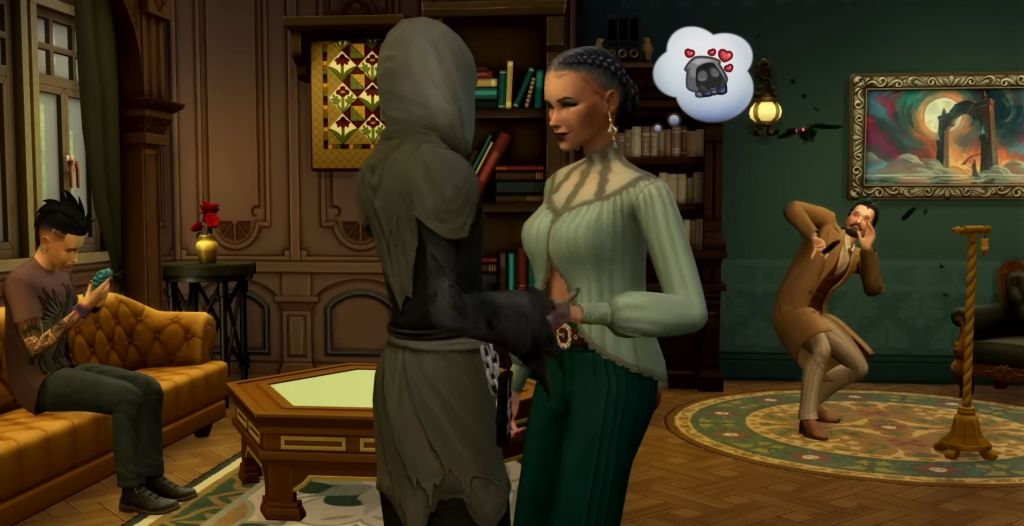
Collage by Madison Griffiths
There was always an intensity to Theo*. I didn’t really understand it, but it consumed me. We met when I was 17, sitting beside a friend’s pool, my feet dipped in the water. People had told me we’d get along, that we were remarkably similar. Theo stared at me vacantly and rolled a joint. I felt dizzy.
When you hear about what constitutes an “abusive” relationship, things usually start normal and then devolve. But no one would’ve ever have called what Theo and I had normal. At first, I found it enticing. Nobody understood Theo and me like we did; nobody got it.
Videos by VICE
I looked down on friends in healthy relationships. Those loved up, picturesque couples seemed repulsively superficial to me. I thought that Theo and I shared a love so profound, so undeniably intense, that it would be insulting to try and make it abide by conventional standards.
But the warning signs were there: Theo had no qualms about calling his mom a “cunt” if she frustrated him. He was asked to leave job after job because he couldn’t get along with anyone at work. I felt like I was dating an unbearably cruel deity at times. And the crueler he became, the more I craved his love.
Theo would often use what he referred to as “scare tactics”—subtly violent attempts to frighten me. He’d climb on top of me and dig his thumbs into my shoulders, whispering things like “shut the fuck up” or “I wish you would just go and fuck yourself.” But he’d do it quietly, so my parents sleeping down the hall would never hear. I remember lying there paralyzed, completely dissociated from my body, hearing my own voice far away repeating don’t, don’t until he’d slink off of me.
He slapped me across the face exactly once. It shocked me, and I just stared at Theo as he began to laugh. “You love it!” he exclaimed. “You’re going to tell everybody that I’m an ‘abuser’ now, aren’t you?” He was wrong. I never told anyone.
The really frightening thing about my relationship with Theo, though, wasn’t being held in confines of his tight grip or bad temper. It was the emotional abuse—how good he was at it, how practiced for someone so young. He convinced me I was unfeminine, overweight, badly dressed, and lazy. I made his skin crawl. When I cut my hair shorter, he’d call me by a male name. I swallowed his harsh words with pride and determination. My own reflection began to change for me.
He made me join a gym, lose weight, and romanticized the disordered relationship I had with food. At 120 pounds, he decided I could only buy certain food and drinks. After weeks of cigarette breakfasts and evening purges, he congratulated me when I was able to fit into a pair of my best friend’s jeans. She was being treated at the time for severe anorexia and bulimia.
Still he refused to have sex with me under the guise that he “simply wasn’t attracted to me.” He once spat into a bowl after a brief, incredibly shameful attempt at oral sex. I felt as though I was riddled with disease. I started cutting myself with a Stanley knife—a sad attempt to shock empathy from him.
Why didn’t I leave? This isn’t the right question. So many forces knit women into abusive relationships. But I think it’s important to say that it isn’t just the obvious things—like having kids together, or a home, or years of shared history.
At the center of it, being in an abusive relationship slowly convinced me that, although Theo might be indisputably cruel, I was totally unlovable. He’d often say how frustrating it was that his family and friends liked me, that they couldn’t see how terrible I really was. I believed this was the love I deserved.
Rock bottom came when I followed him to Europe after his six-month exchange. One night, I fearfully recorded his drunken rantings on my iPhone. Listening back to the tapes, I can hear him convincing me that I was the abuser. I remember him climbing on top of me, whispering, “Don’t you ever call me an asshole again.” It was as if that one, violent phrase could explain away our failed attempt at love.
One morning, he threw $500 at me and told me I had eight hours to leave or else. I desperately borrowed money off a close friend and stood at a terminal at Heathrow Airport ready to board a plane back to Melbourne. Theo was with me, holding my hand. Even after three years of fear, pain, and exhaustion—knowing this was the last time he was ever going to live inside my head—I still begged him not to leave me. I was so small. I sobbed hysterically through Customs, and once on board pleaded with the air host that they stop the plane.

Collage by Madison Griffiths
Ten days after I got back home, Theo called me and told me he missed me. He said there was nobody like me. I slunk onto the floor of my bedroom and cried. I felt myself falling back, but instead, I decided to play my iPhone recordings of Theo to my friends and my family. Their shock and sadness stopped me, finally pulled me away from him.
I often wonder what would’ve happened if I had stayed. I’d be lying if I said that there aren’t nice fragments that linger, scattered amid the hurt. I don’t hate Theo, nor do I want to. He told me I played the piano well. Sleeping next to him was my favorite thing. He possessed no resentment when his eyes were closed, but rather a warm instinct to hold someone, and I was that chosen person.
A huge part of why I didn’t leave Theo is that I didn’t know what how I could exist without him. Boarding that plane at Heathrow, I felt numb, like there was nothing left of me. It took months to realize the effects of his abuse. All of my insecurities—the swirling remains of Theo’s defamation, hurt, and humiliation—riddled my next relationship. But this time my partner was a man willing and able to love me. And things have gotten better.
Now I eat what I like. I laugh without worrying I’m being too loud. My hair is short. I canceled my gym membership. I’ve come to accept another person’s love and even feel I deserve it every so often. I started drawing again. And I write honestly, the words purging Theo’s insults and leaving them to rot on the page, as best as I can. My humanness is unashamedly real, honest, and, perhaps, even beautiful sometimes.
See more of Madison Griffith’s illustrations on Instagram.
More
From VICE
-

Screenshot: Electronic Arts -

Holger Leue/Getty Images -

Screenshot: Shaun Cichacki -

Image: 20th Century Studios